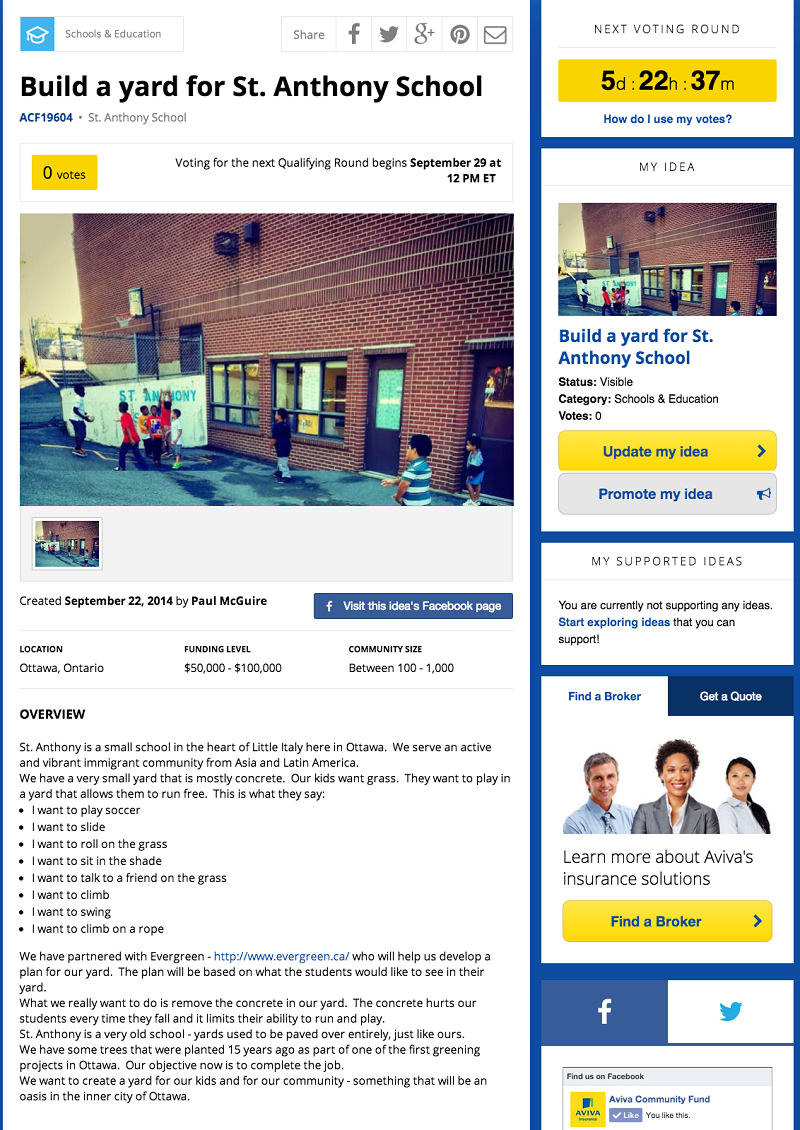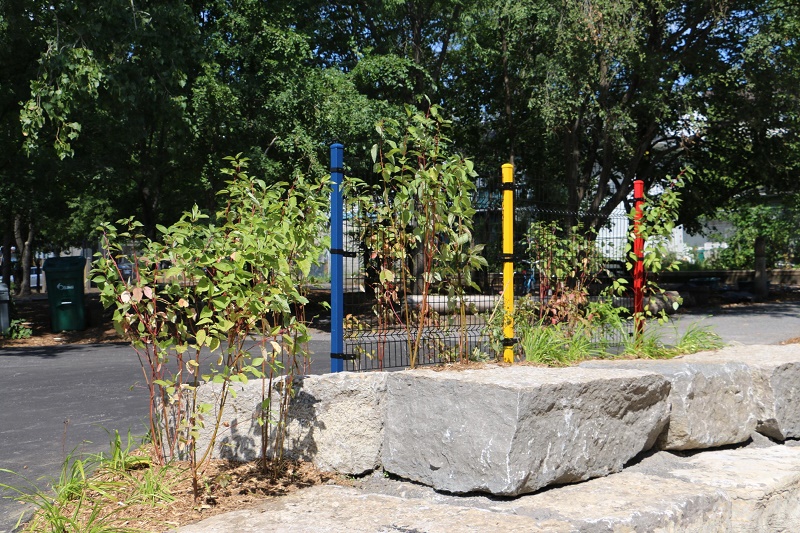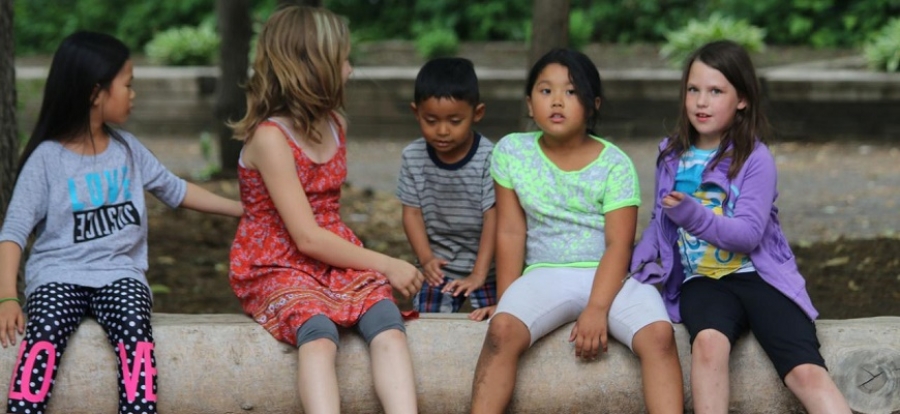On our own, we didn’t have much. All children deserve every opportunity you can give them. So if you don’t have what students need, it is your job (and opportunity) to get out there and find the resources that can provide the well-rounded educational experience they deserve.
Life in a poor school is so incredibly different from other schools, schools that are not much more than 20 minutes away.
Most people don’t see Ottawa as a city that has lots of “I didn’t really understand the level of Ottawa’s poverty until I became principal.”poverty, and to be very honest, I didn’t really understand the level of poverty that exists in our city until I became principal of this school two years ago.
So, what does this mean? You can accept the status quo and accept that you are working with fewer resources, or you can innovate and investigate the wonderful opportunities that exist in the community to provide what students need.
To be successful in a school like this, you need to become a community activist. You attend brown bag lunch sessions with community service providers, you reach out to every community agency in the area, you never turn down something that is offered to your school for free.
You also have to become an expert fundraiser. Over the past two years, we raised over $170,000 through fundraisers run by our community, by writing grants and by winning one very generous national fundraising competition.
All this takes a tremendous amount of work. But it also opens so many new doors!
One project in particular was really satisfying. We decided to finish a school yard redesign project that had started 15 years earlier. With the incredible assistance of the local community and a multitude of funders and foundations, we were able to design and raise enough money to finish the great work that started years ago. The campaign was called ‘Asphalt to Oasis’, and after two years of great teamwork we won the Aviva Community Fund National Competition and were awarded $100,000 for the yard.

A sample of our fundraising page during the Aviva Community Fund campaign
Money tends follow money, and we were able to accumulate approximately $80,000 more from community-minded foundations and corporations. We also received invaluable assistance all along the way from school board consultants who consulted students and teachers on what the design of the yard should be. What a wonderful group project!

Part of the new school yard finished in September, 2016
We continued to look for opportunities to fund other projects. With the help of our school board and at least one tech company, every child in our school from Grade 3-6 received their own laptop – this is essential, as many families do not have a computer. This initiative resulted in a student population incredibly skilled at using computer technology.
We received free swimming lessons and even “Every child in our school from Grade 3-6 received their own laptop.”free music lessons from the Orkidstra program. We were linked to a great program called Rec Link that works to link families up to free or inexpensive recreation programs in our community. We worked with a wonderful summer camp that takes at least ten of our students for overnights throughout the year.
What does this all mean? To work in a poor school, you have to be an advocate, you have to reach out to everyone. You then discover there are so many people out there who are willing to help.
It would be hard to find a more fulfilling and meaningful challenge. What a great way to end a career!
Do you work with pupils from lower-income families? Share your experiences below.


















